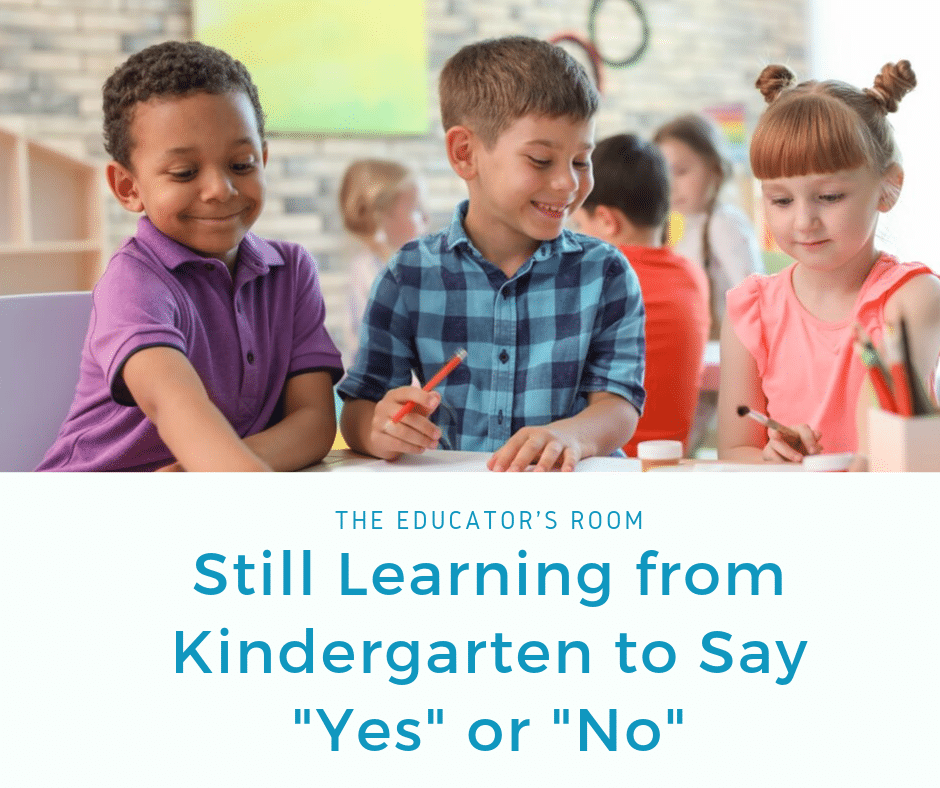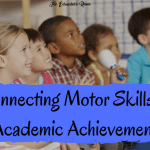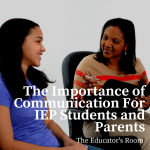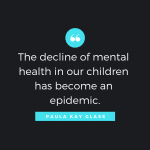I watched as 18 sweaty kindergarten students filed back into their classroom after their first-ever outdoor recess period. Some walked confidently to a seat; a few hesitated, scanning the room before finding their assigned chair.
Soft music played in the dimly lit classroom, and there were some papers and crayons laid out on each table.
As the students settled into the quiet, the teacher moved to the table farthest from the door.
She crouched down, squatting at eye level, and asked the first child, “Do you need to use the bathroom?”
The child nodded.
“Say ‘yes’ or say ‘no’,” the teacher said.
“Yes,” the child quietly murmured.
“Will you need a drink of water?” the teacher asked.
The child nodded again.
“Say ‘yes’ or say ‘no’,” the teacher corrected.
“Yes,” the child said more clearly.
“All right. You may use the bathroom. When you are finished, you may stop by the sink for a drink of water.”
“Okay,” responded the child getting out of his seat.
The teacher then moved on to a second child.
Crouching down low, the teacher repeated the question, “Do you need to use the bathroom?”
The student nodded, and the teacher corrected her.
“Say ‘yes’ or say ‘no’.”
“Yes.”
And so on.
The teacher crouching at eye level; making eye contact to ask each child in the room a question.
Crouch, make eye contact, speak.
Repeat.
And, at each chair, a spoken response from a child.
The critical importance of oral language
So, there it was. The first day of school and the kindergarten teacher was already teaching students the critical importance of oral language.
This was a simple but obvious lesson.
Her question required a spoken response.
She would not accept a nod; the child must talk.
My mind was blown.
My 23 years in the secondary classroom had been a very different experience.
I recall settling for a nod…hopeful for a grunt from a sophomore or junior. Searching for a shift in body language that signaled agreement or disagreement.
Of course, I know there are 10 to 12 years of hardened classroom experience separating the new kindergartner and the average high school junior, but the ground rules should always be the same.
Even during the post-recess lull, the kindergarten teacher had laid those ground rules out very clearly:
- A question requires an answer.
- An answer is a spoken response.
- Eye contact is important.
Suddenly, I wanted to go back to all those first days of school and impress up all students the importance of speaking a response. I wanted to return to the classroom and remind them of the need to use their oral language skills.
I wanted to revisit long-ago classrooms and preach speaking and listening with intent.
There is ample research that shows that oral language is critical in laying a foundation in developing a student’s reading and writing skills. These oral language skills of speaking and listening are interdisciplinary. There is an entire set of standards written for them. Building on these oral language skills will support every aspect of a student’s academic and social experiences, in schools and later in life.
I watched the kindergarten class practice those oral language skills of listening to a question (“Do you need to use the bathroom?”) and speaking (“Yes.’”) taught on the first day of school.
It reminded me that everything you need to know about education, you can learn in Kindergarten.







